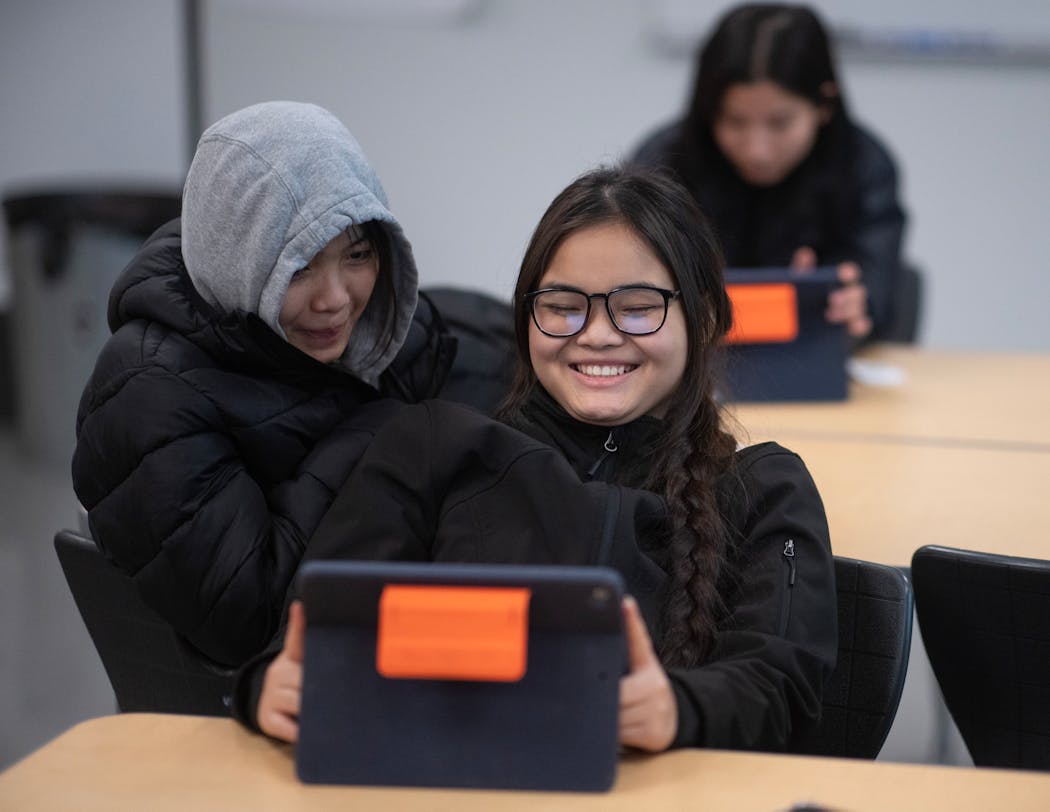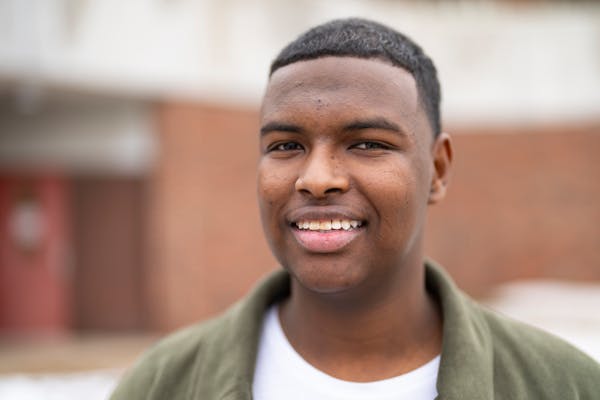St. Paul Public Schools is four months into the launch of a Karen language program believed to be the first of its kind in the nation — and already planning for an expansion.
Courses once thought to be unheard of in the wake of a military coup on the other side of the globe in 1962 now are being offered at four St. Paul high schools and online. The lessons are of a homegrown nature, developed weekly by a team of district Karen teachers.
Last week at Humboldt High School, a small group of students who speak the language but do not yet know how to read or write Karen, listened to teacher Lighter Moo break down alphabet basics and discuss clothing and the art of weaving.
"I want to equip them with the tools so they can not only read, but explore their culture, and talk to their family members," Moo said later. "We call it the intergenerational problem."
St. Paul's program is considered groundbreaking due to events that occurred more than 60 years ago when a military regime took over Burma, now referred to as Myanmar, and barred the teaching of the Karen language in public schools.
That's left many children in the Karen refugee community — 2,510 of whom attended St. Paul Public Schools in 2022-23 — receiving their language instruction at church, said Megan Budke, the district's immersion, Indigenous and world language coordinator.
The state's second-largest district now has 341 kids studying Karen and plans to make the courses available at its middle schools in 2024-25.
Said Budke, "I was going to be happy with 100 students."
George Thawmoo, a Karen parent, said he, too, was impressed with the enrollment numbers and the plans for growth.
"I am very grateful as a community member," he said.
St. Paul's Karen Parent Advisory Council first expressed a desire for Karen language instruction in 2015-16, and the cause was picked up by Karen staff members in 2019-20, only to be put on hold by the COVID-19 pandemic.
A pivotal player in the effort has been Hsakushee Zan, a district bilingual education leader who came to the U.S. from Thailand after fleeing Myanmar. She recently received the state's outstanding refugee award in entrepreneurship.
Budke came to the district in 2021 from Wayzata Public Schools, where she worked on Spanish curriculum development, and along with Zan and others, she put together a course proposal that won school board approval in November 2022.
Then came curriculum development.
Budke said there are common themes in language courses, but two that differ in the Karen curriculum involve clothing — with the emphasis on weaving — and their arrival in America.
"We know in the intermediate level there is a focus on the past tense, and we wanted to say: 'Well, what's meaningful for you in the past tense?' " she said. "For them it was how they ended up here and all the events that happened."
Collectively, the Karen staff has contributed more than 300 hours to develop the language courses, with much of the work taking place "outside contract hours" on Friday nights and during the summer, Budke said.
They were paid, she said, but the main takeaway was about people giving up their time after long days at school to invest in their community.
Moo said teachers have about two weeks of lesson plans on hand as they continue to create new ones. The Karen courses — one for those new to the language and another for those who speak it at home — also are being taught at Harding and Como Park high schools, and at Washington Technology Magnet School.
Soon, a replay of sorts is set to begin with the development of Somali language courses, according to a school board presentation last week. The district had 1,282 Somali students in 2022-23. Board Chair Jim Vue noted that once again the community was taking the reins, propelling the district to a "better place," he said.
He also professed to being emotional on the subject.
"You're telling us that the future is now," he told community members in attendance.
New Minnesota GOP leaders seek peace with party's anti-establishment wing

Who is Republican Lisa Demuth, Minnesota's first House speaker of color?

Minnesota House GOP, Secretary of State Steve Simon return to Supreme Court
Supreme Court sides with DFL and Simon, says 68 House members needed for floor action



